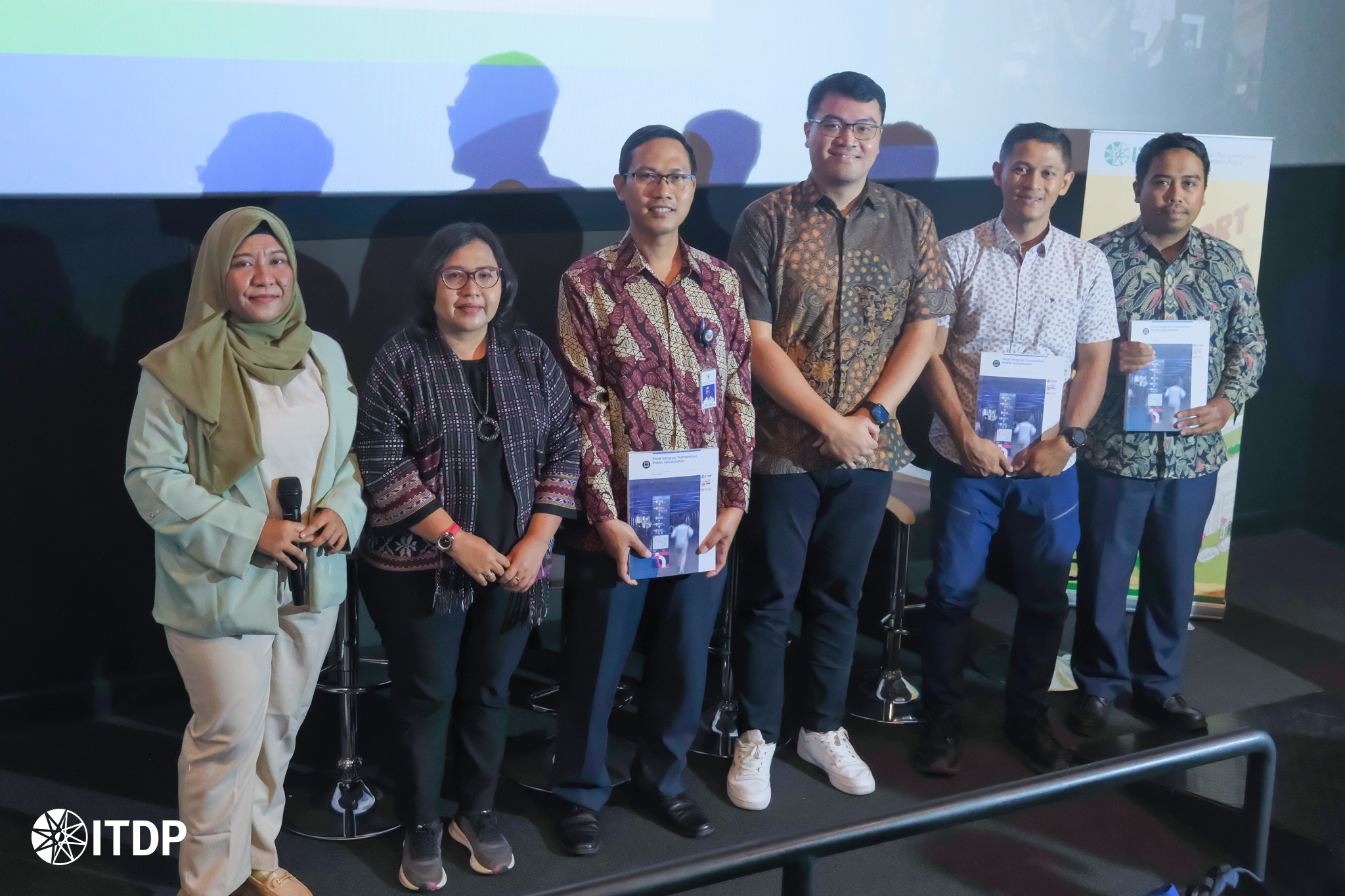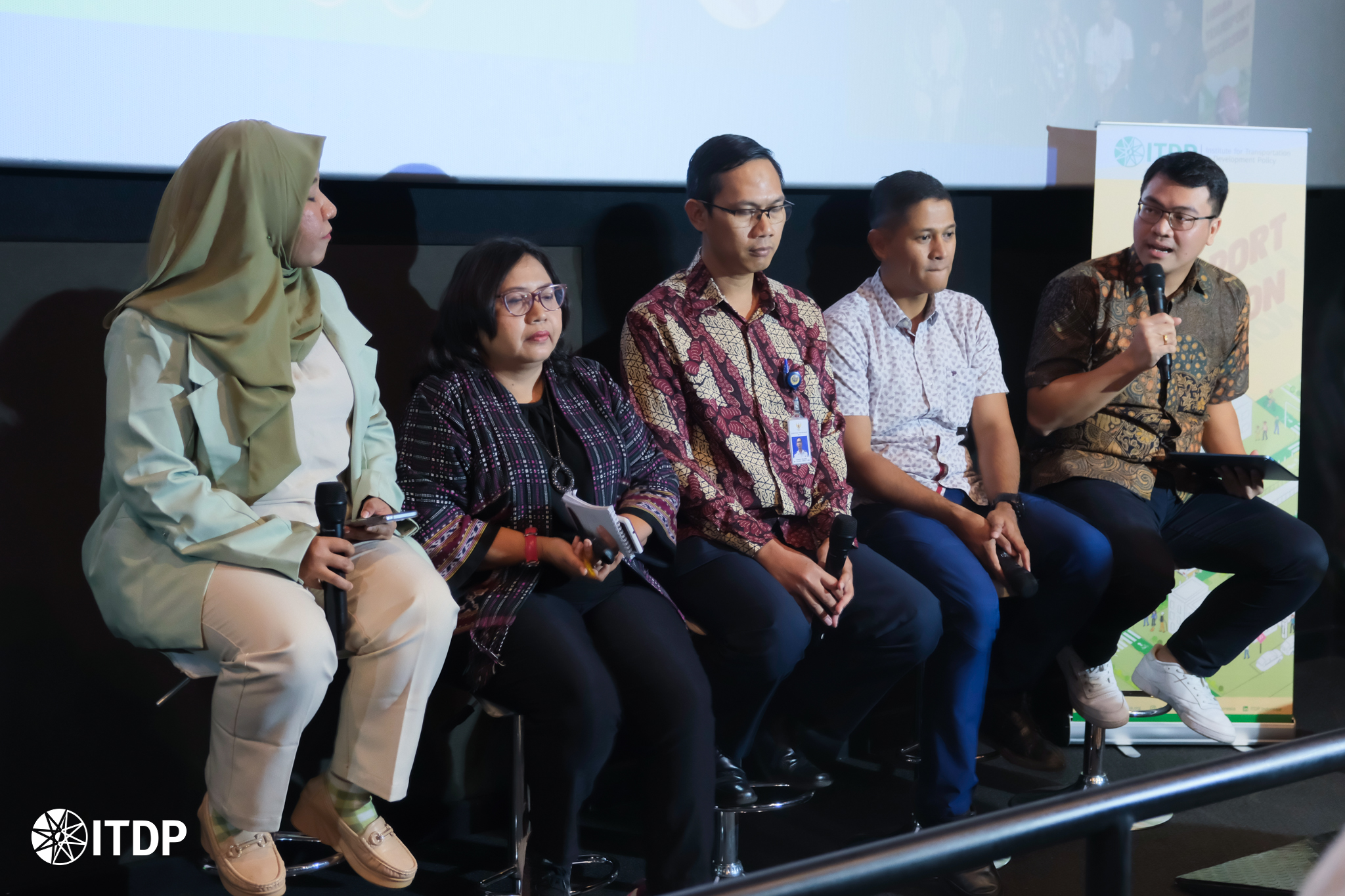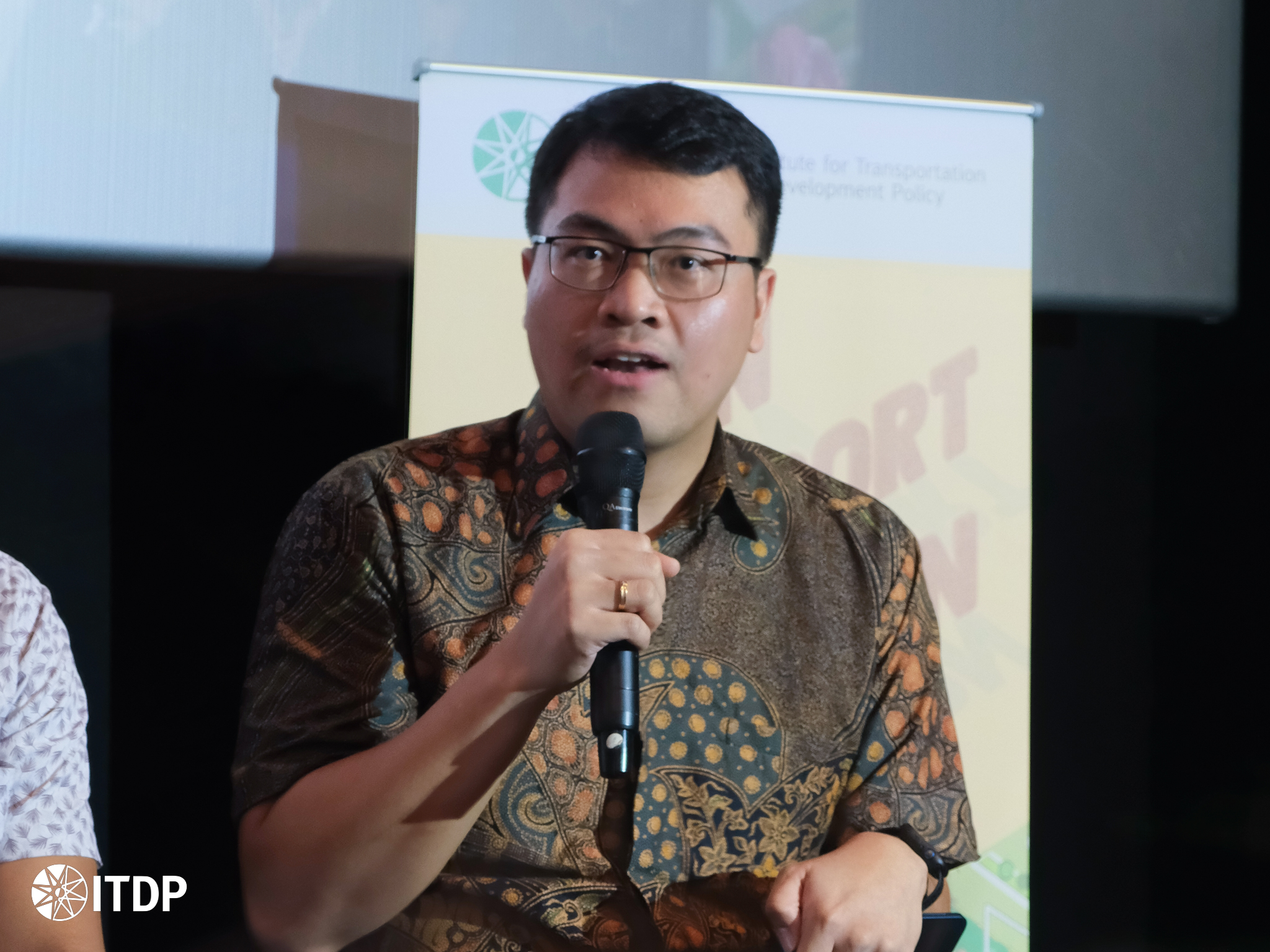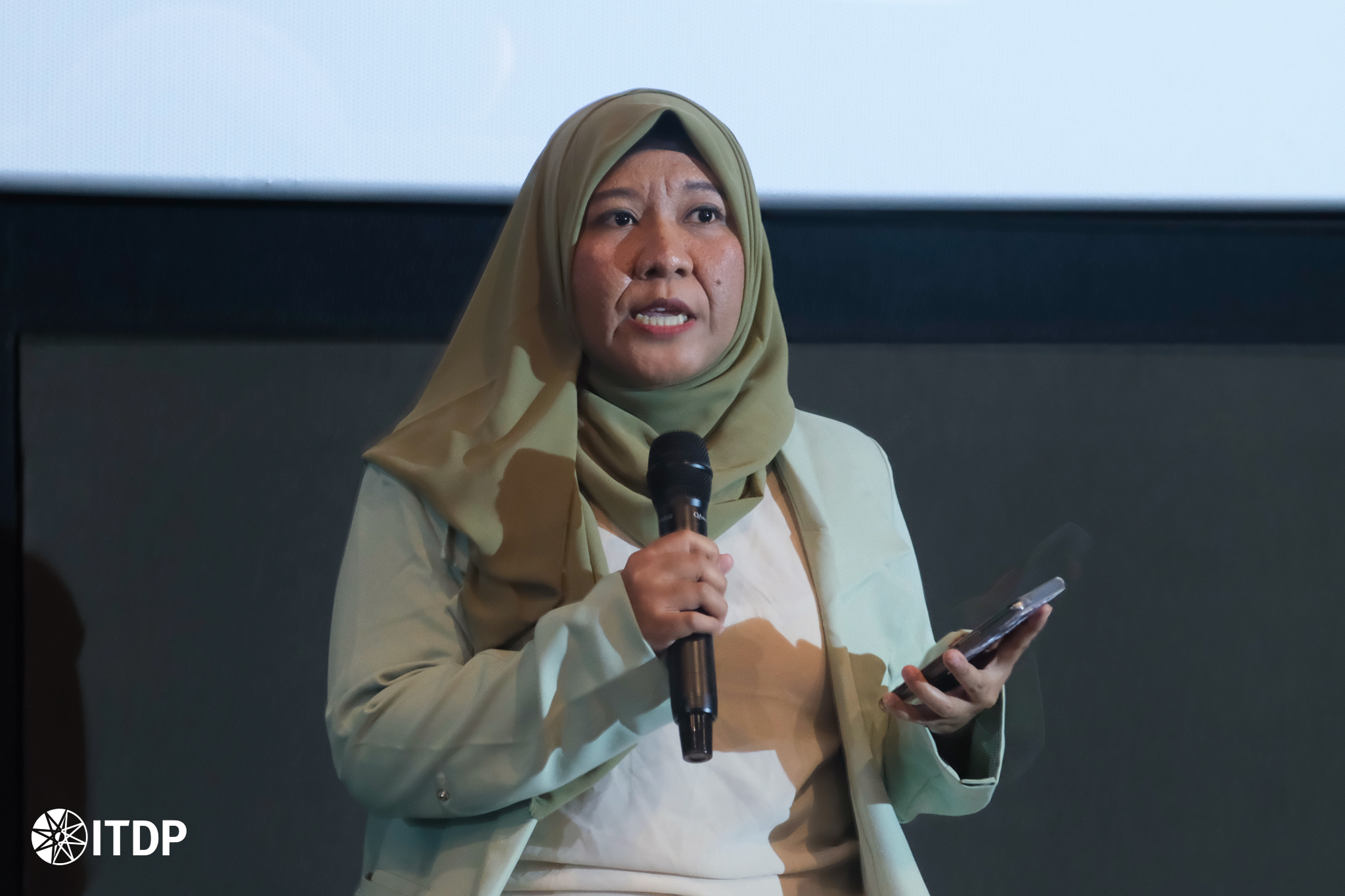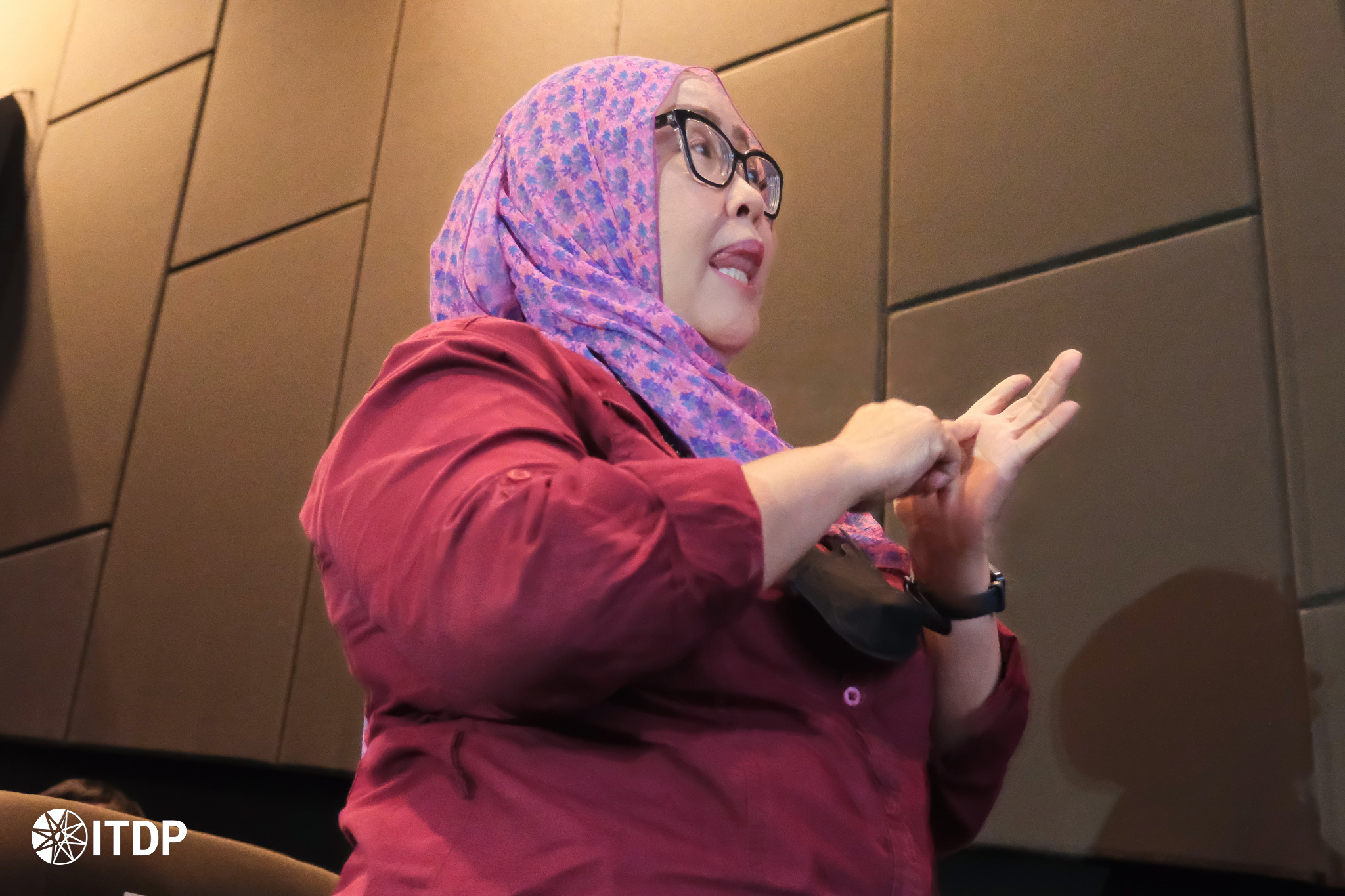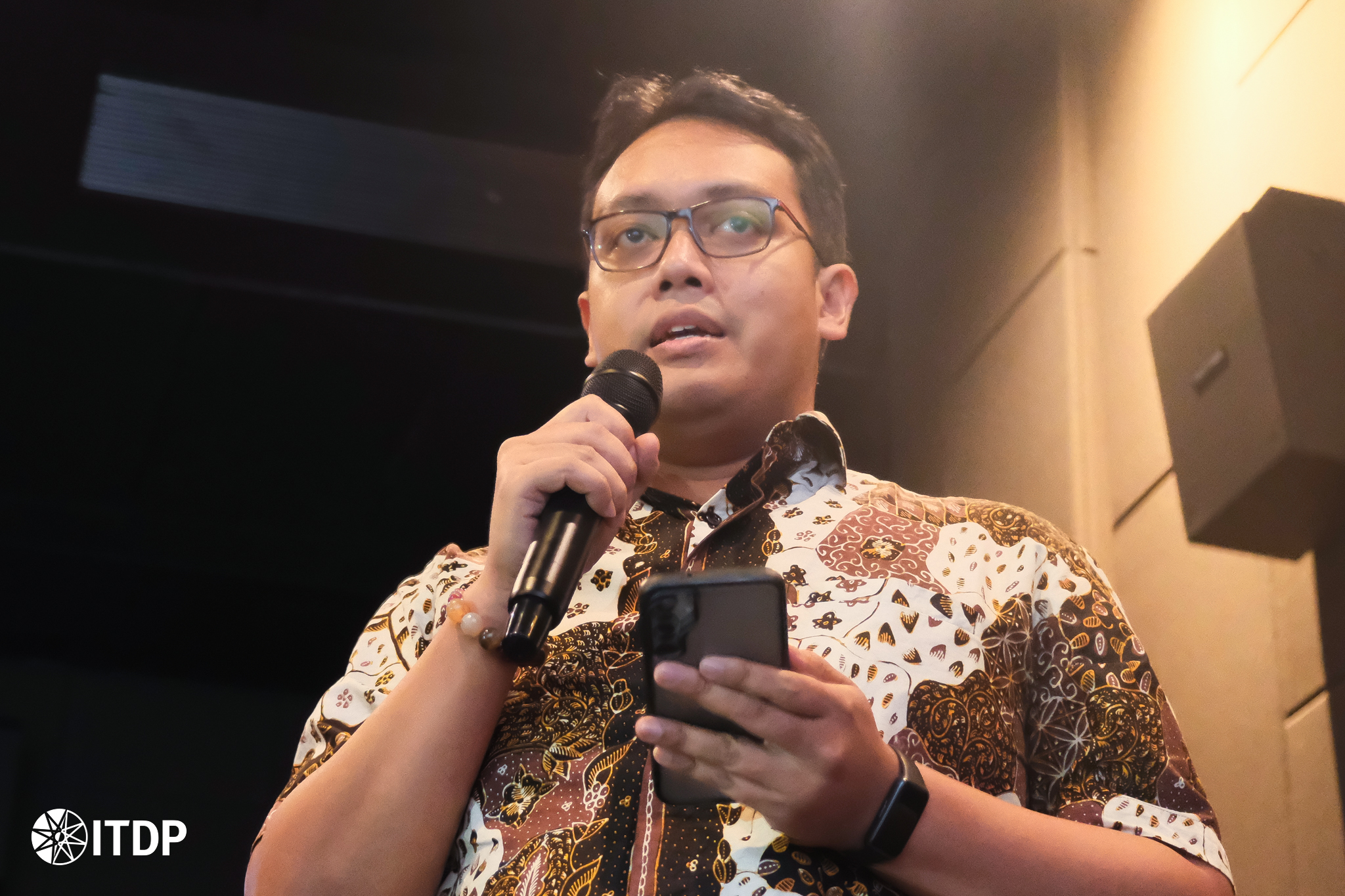March 21, 2024
Urban Transport Discussion #31: Can Institutional Integration Solve Chaotic Mobility in Metropolitan Jakarta?
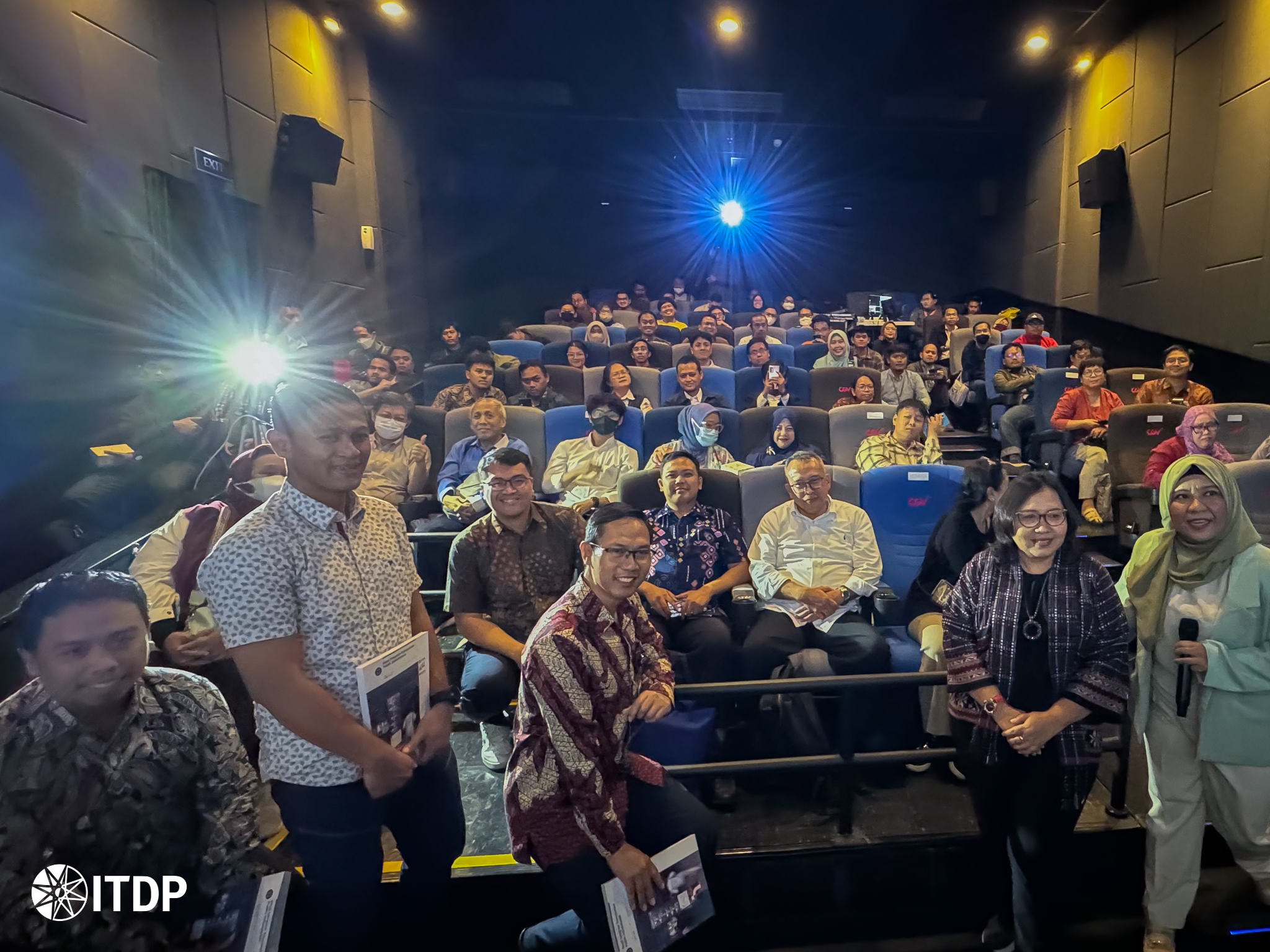
As part of the dissemination activities of the Public Transportation Integration study in Jabodetabek supported by the British Government through the UK PACT program, ITDP Indonesia held a public discussion, “Urban Transport Discussion #31: Can Institutional Integration Solve Chaotic Mobility in Metropolitan Jakarta?” on March 20, 2024 at CGV Poins Square Mall, Lebak Bulus, Jakarta. Adinda Ramadhaning Kusumo, Kompas TV Journalist, hosted the public discussion as the moderator and was attended by the speakers: Hananto Prakoso, Head of Planning and Finance of Jabodetabek Transportation Management Agency (BPTJ) Secretariat, Gatot Indra Koswara, Head of Operations Division of PT Transportasi Jakarta (Transjakarta), Dewi Pancawati, Researcher of Kompas R&D, and Gonggomtua E. Sitanggang, ITDP’s Southeast Asia Director.
Gonggom opened the discussion by explaining that public transportation integration includes tariffs, institutions, and safety or services. The current public transportation system in Jakarta is established. However, it is necessary to ensure the accessibility of public transportation for people outside Jakarta, namely the Bodetabek area, for mobility. “For example, commuters who have to connect to South Tangerang from Lebak Bulus with inadequate service. Regarding tariffs, commuters who use angkot must pay in cash,” he explained. The integration can be done if there is already an institution that can integrate all aspects of integration to ensure the availability and convenience of public transportation for the Jabodetabek community and encourage the achievement of public transportation mode share to reach 60%.
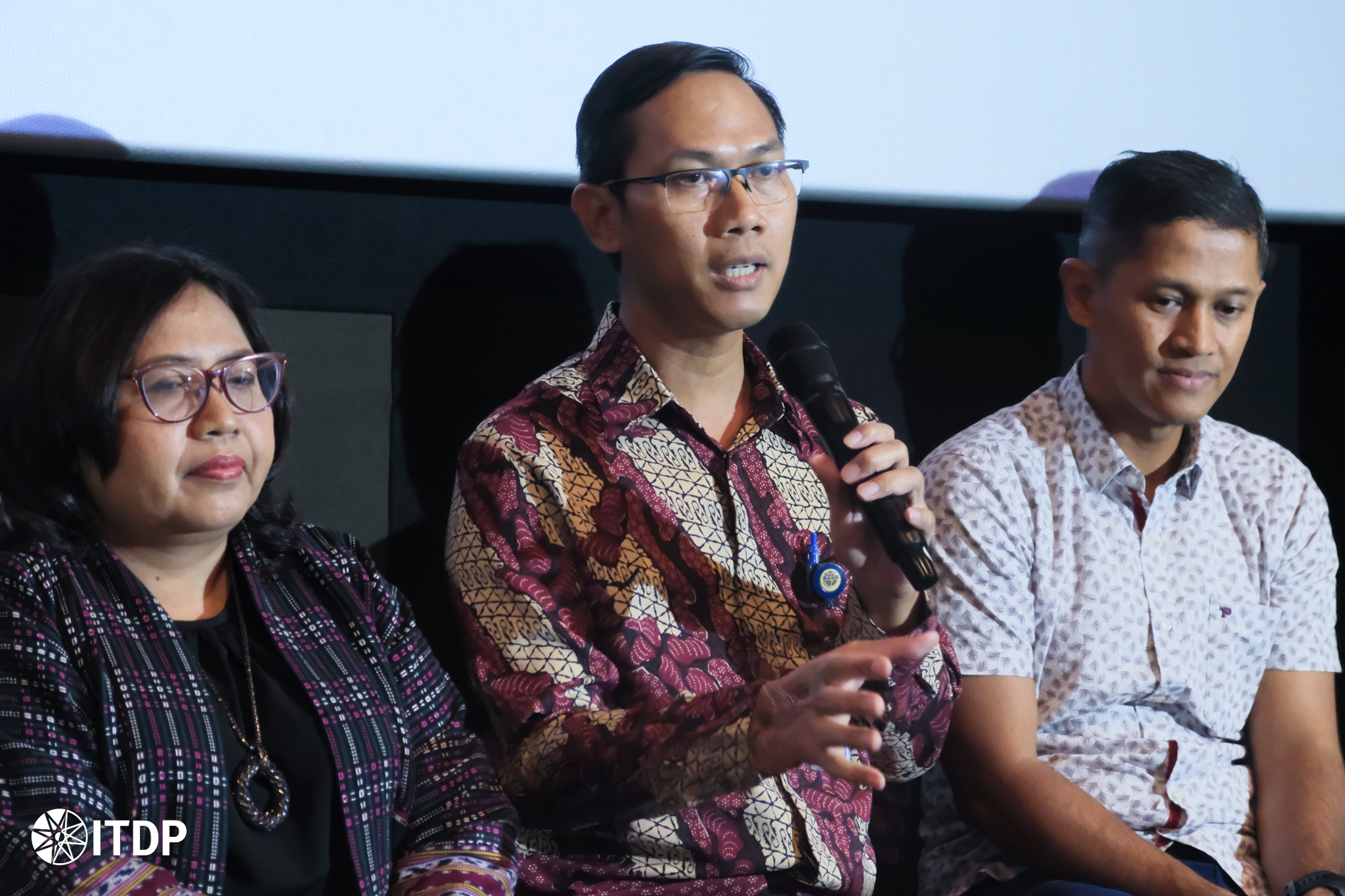
Hananto added that priority scale efforts for public transportation integration through expanding public transport service routes targeted at middle-class residential areas should shift from private to public vehicles without transit (point-to-point) due to the gap between the population of 7.9 million and captive users of 1.2 million. “In addition, the concept of institutional integration has been included in the 2025-2029 RPJMN. In the future, agglomeration cities in Indonesia will move quickly, and coordination between local governments is needed. Bappenas has included 10/11 agglomeration cities prioritized for institutional formation,” he said.
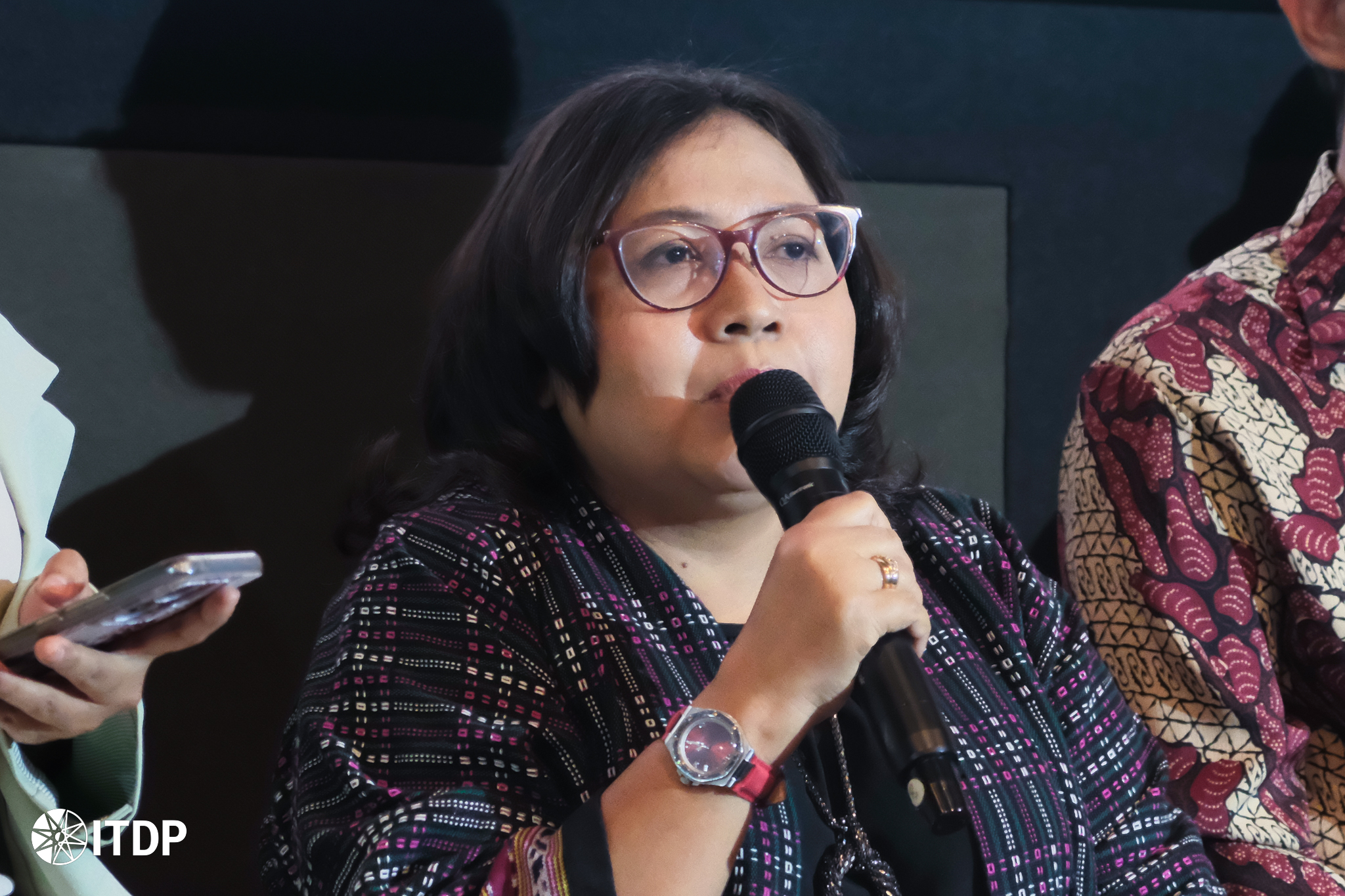
Moreover, Dewi explained that Kompas had conducted special coverage on the congestion issue in 2022, finding that people appreciated the availability and tariffs of public transportation. However, this still needs to be followed by a change in behavior to switch to public transportation modes, especially for people from the Bodetabek area who commute by private vehicles. “The push policy aspect (private motor vehicle restriction policy) is important for transitioning from private to public transportation. Stricter fiscal-based policies such as vehicle restrictions and parking fees can be an example to implement. We need more stringent, economic-based policies regarding vehicle restrictions, parking, and toll tariffs. Integration institutions are also necessary,” said Dewi.
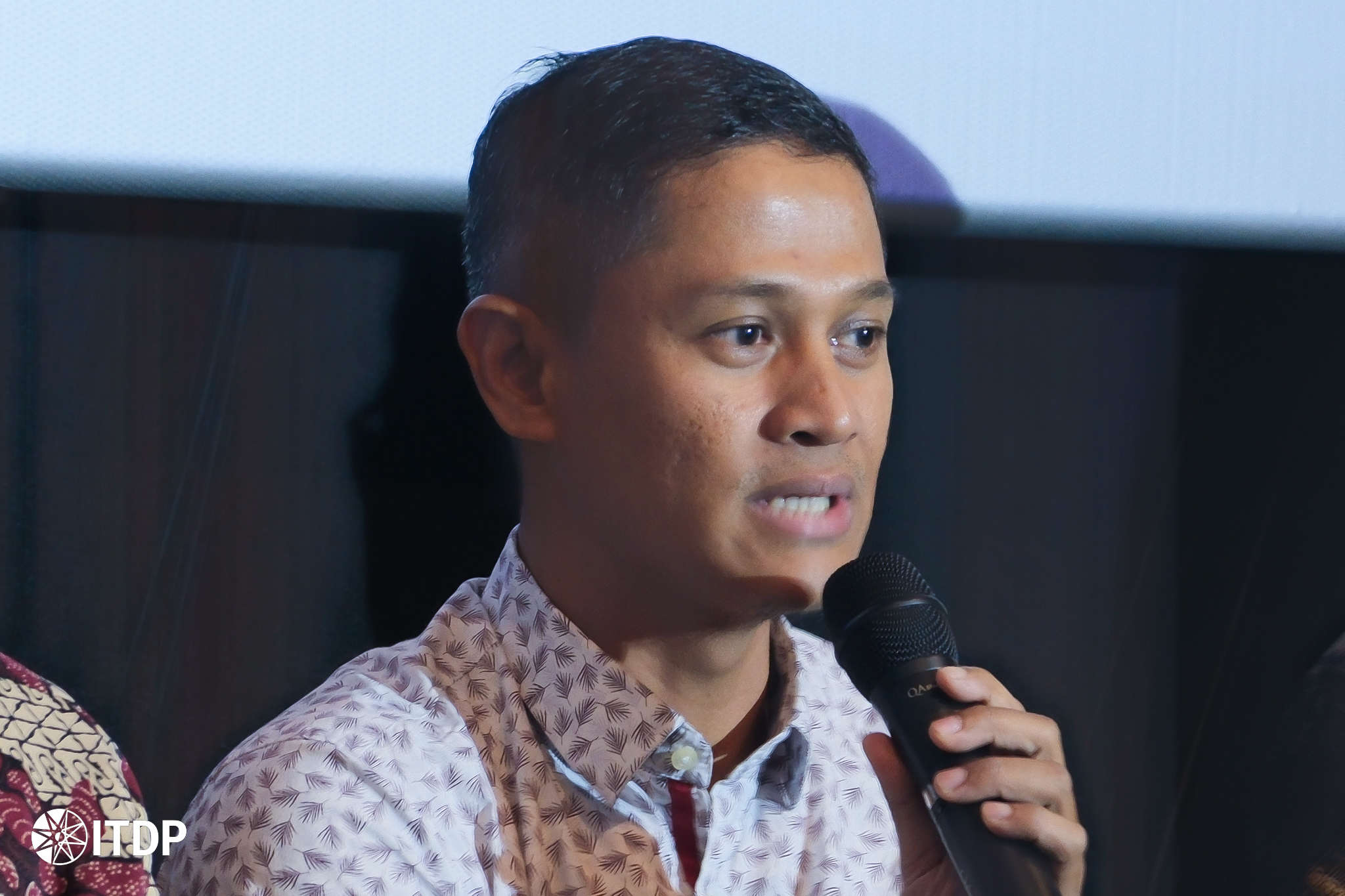
Gatot conveyed a proposal from Transjakarta regarding integrating public transportation through institutions with a regulator from the ministry. “Including the transfer of responsibility for providing subsidies to the central government so that the executing agency (such as Transjakarta as an operator) will receive subsidies for public transportation services in the hope that public transportation services throughout Jabodetabek will become uniform,” he explained.
The discussion continued with a Q&A session between the event participants and the speakers. Then, the moderator delivered a conclusion that integrated institutions need to be accelerated under the president directly to achieve the 60% mode share target and encourage increased accessibility. Also, there should be clear legal protection in regulating the integration of public transportation in Jabodetabek, especially concerning encouraging political will in each city.
